A fossilised trilobite track has been recreated for an exhibit highlighting Palaeozoic life. The trace fossil with an accompanying trilobite model can be seen at the Liverpool World Museum.
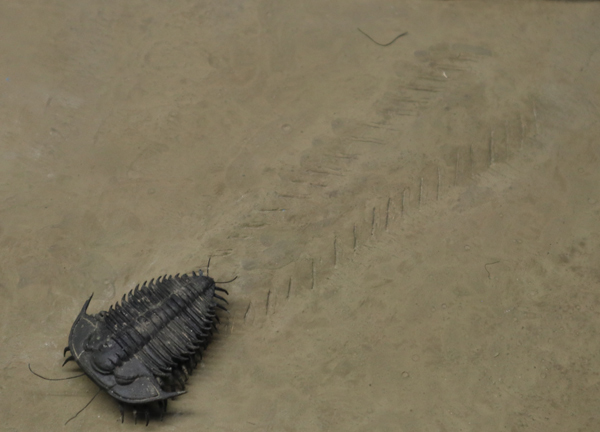
Picture credit: Everything Dinosaur
Trilobite Fossils
Trilobite fossils are ubiquitous. Tens of thousands of specimens can be viewed in museums and museum collections. However, trilobite trace fossils are rare. The Liverpool World Museum exhibit depicts a trilobite walking across the sea floor. A distinctive set of parallel tracks are shown. Trace fossils preserve evidence of the activity of an organism. Most trace fossils provide direct “in situ” evidence of the environment of the prehistoric creature that produced the trace.
Picture credit: Everything Dinosaur
Commenting Upon the Trilobite Track
A spokesperson from Everything Dinosaur commented:
“The track exhibit provides an opportunity for museum staff to recreate the environment in which some types of trilobite lived. Whilst some trilobites may have been active swimmers (nektonic), others were happy to wander along the sea floor, searching for food. The trace fossil exhibit also gives visitors the opportunity to view models of various trilobites.”
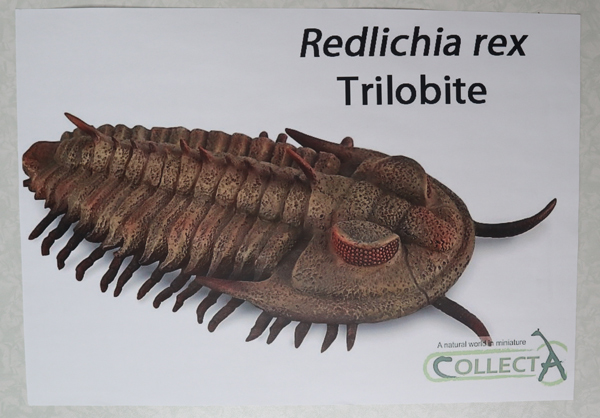
Picture credit: Everything Dinosaur
The model shown above is a replica of Redlichia rex a large trilobite known from Cambrian strata. The R. rex figure is part of the invertebrate series produced by CollectA.
To view this range: CollectA Prehistoric Life Figures and Models.
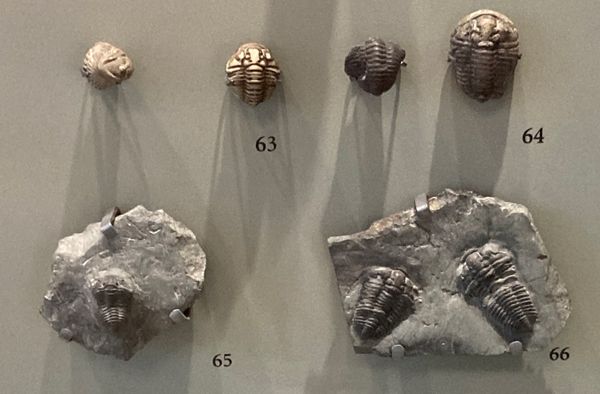
Trilobite Body Fossils
Fossils are used by scientists to identify the relative age of rock strata. Rocks can be correlated through the examination of the fossils that they contain. Trilobites are important zonal fossils. The trilobite fossils shown (above), are from the Silurian (Wenlock Group, Shropshire). They represent examples of the Calymene genus. Some of the specimens are rolled up into a ball, presumably a defensive behaviour.
The spokesperson from Everything Dinosaur added:
“A trilobite fossil might be one of the first fossils that a young person is given as a gift. It can ignite a passion for nature within them and lead to a lifetime of fossil collecting and learning about prehistoric animals.”
View the Everything Dinosaur website: Everything Dinosaur.


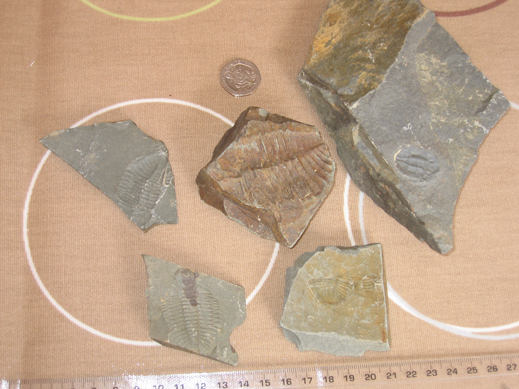
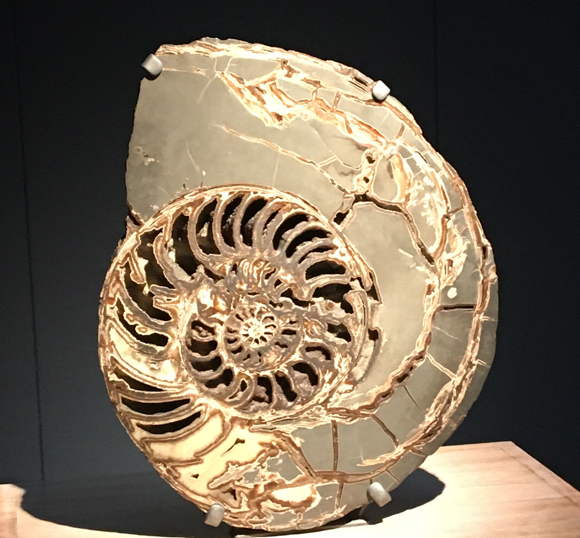
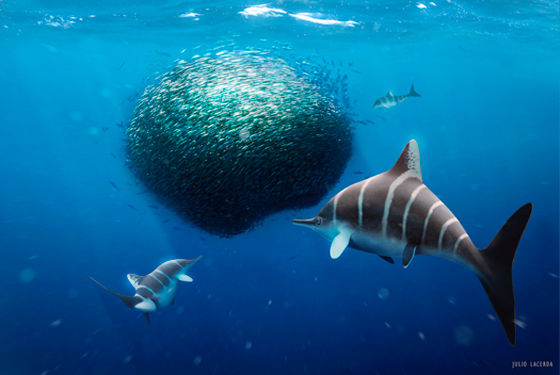

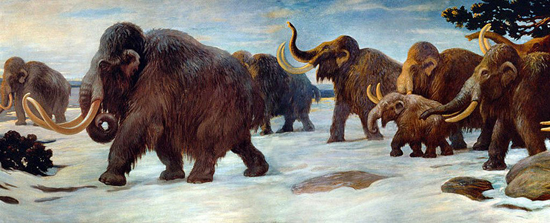
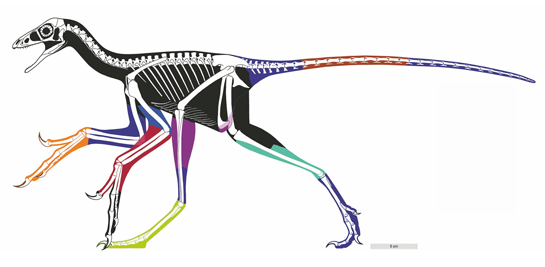
Leave A Comment